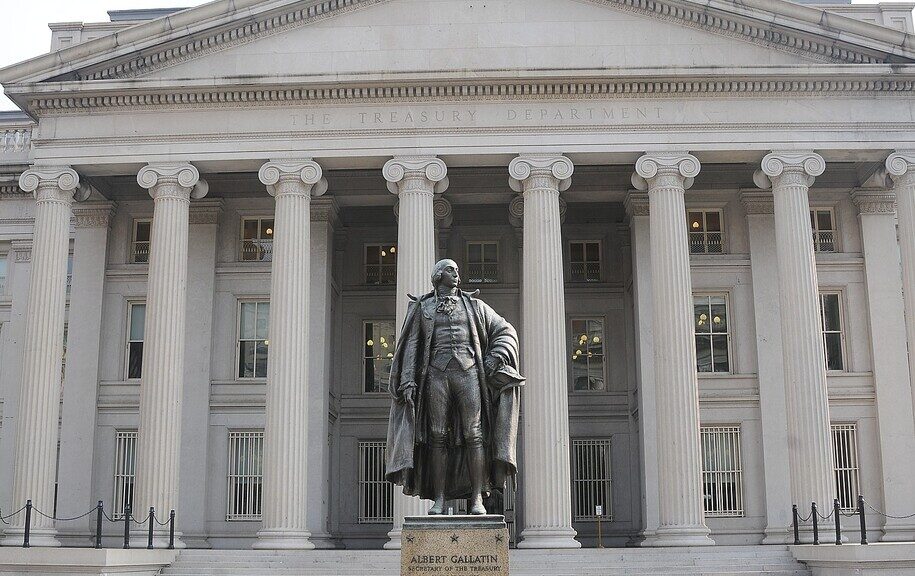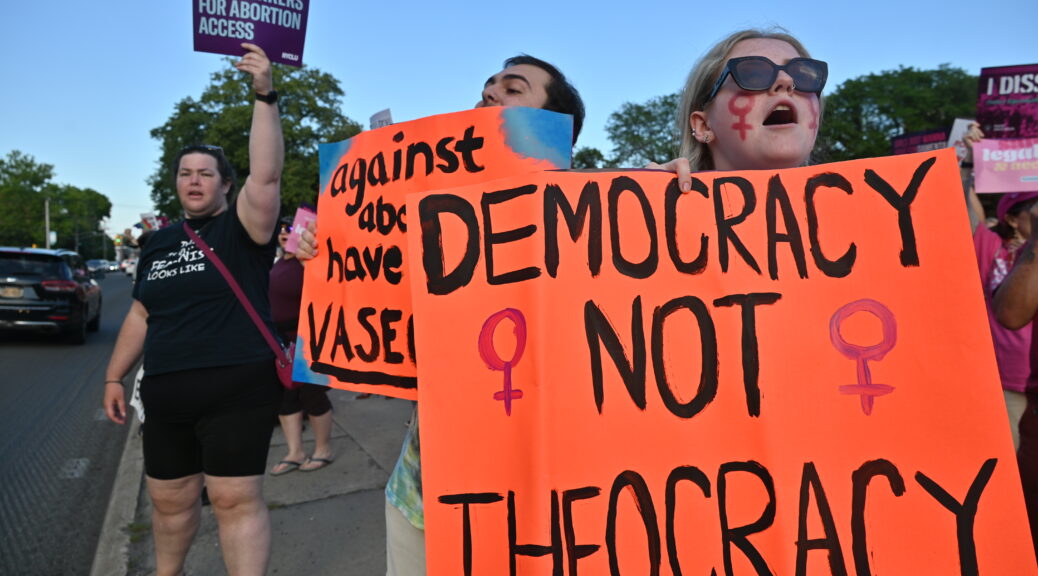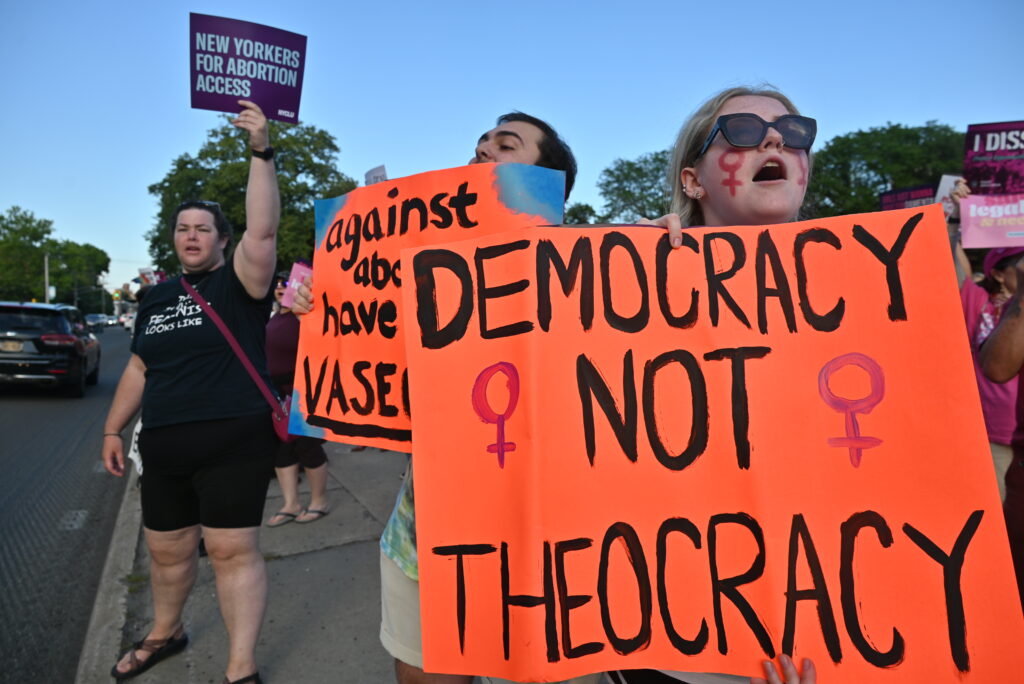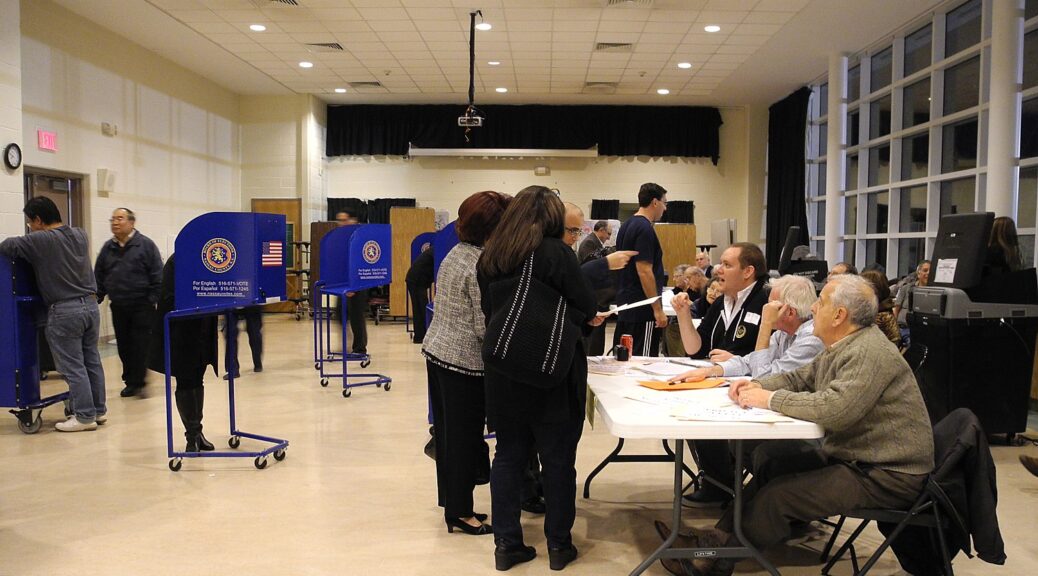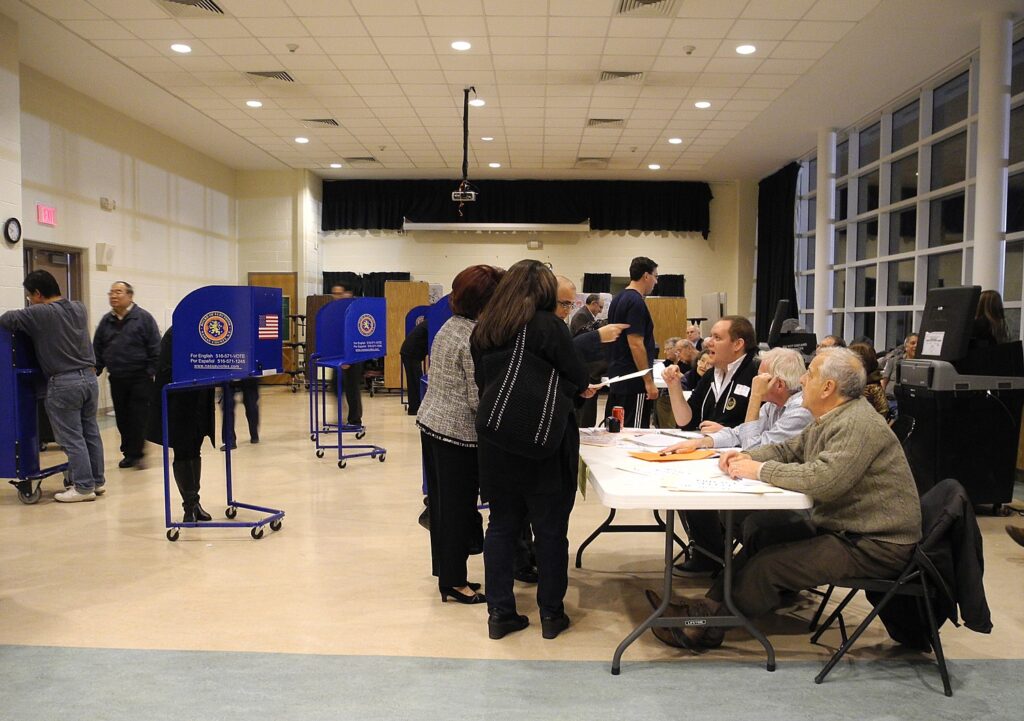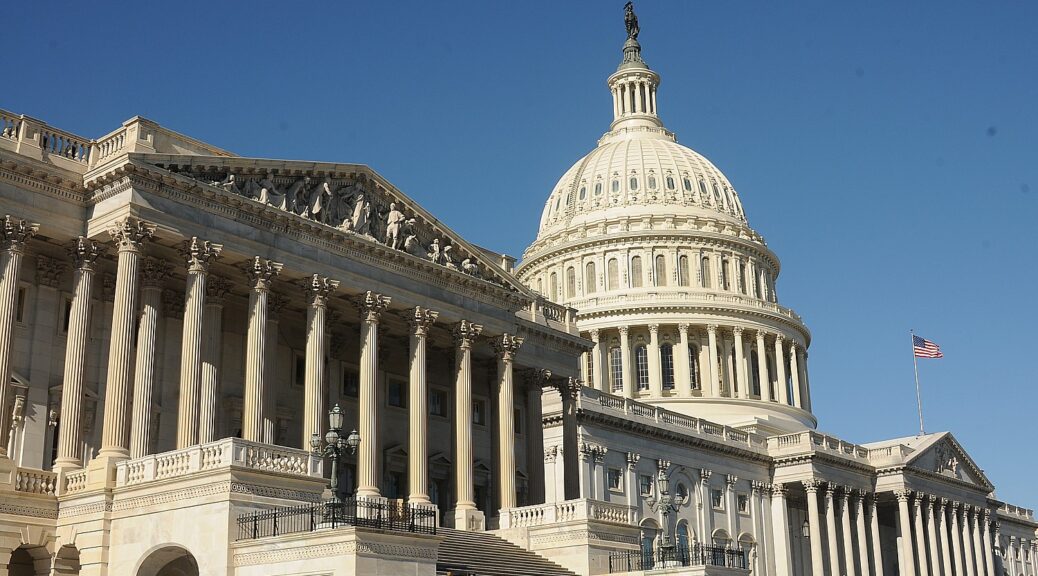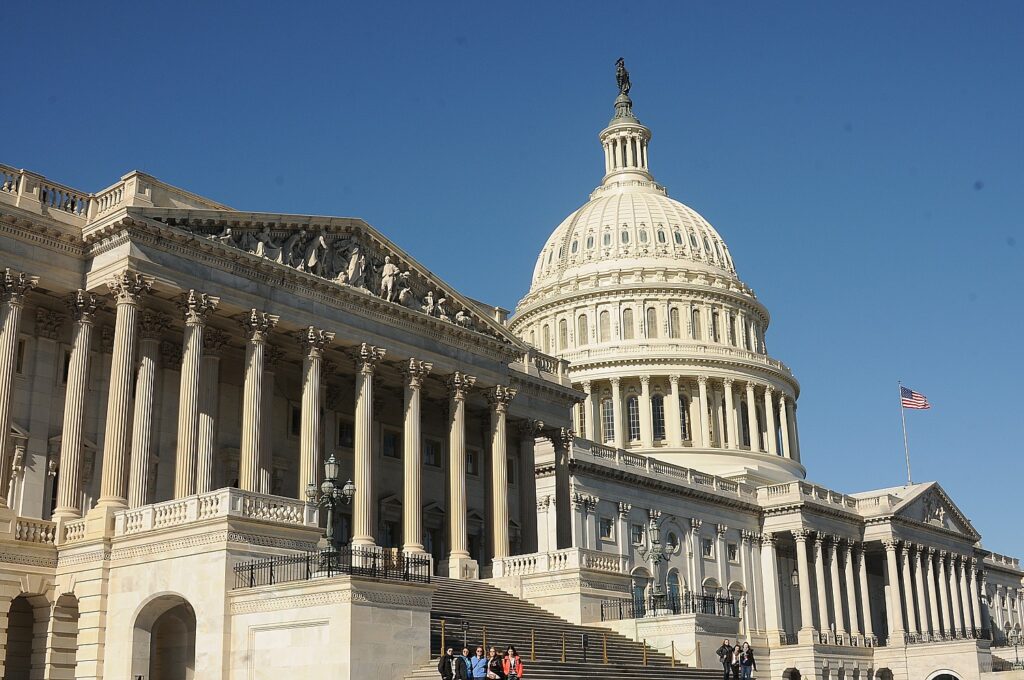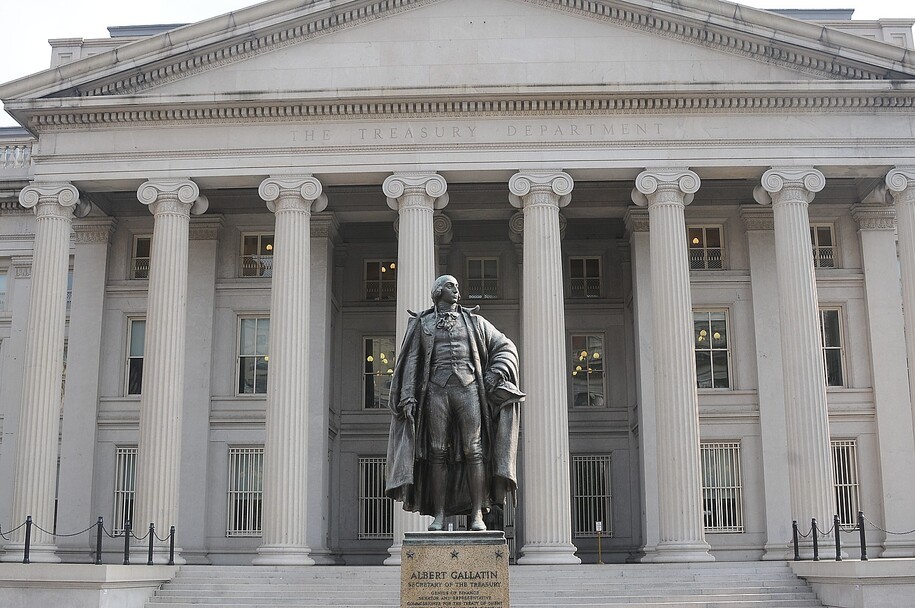
President Biden has correctly assessed the 2024 election as a battle to save democracy against an emergent autocracy. He launched the historic Summit for Democracy in 2021 to strengthen democratic institutions, protect human rights, and accelerate the fight against corruption, both at home and abroad and recently convened the Third Summit.
Can you imagine Trump or any Republican advocating for democracy, strengthening democratic institutions, protecting human rights and accelerating the fight against corruption domestically and abroad? This fact sheet from the White House lists the ways the Biden-Harris Administration is delivering on its commitment to democratic renewal, at its Third Summit for Democracy—Karen Rubin, [email protected]
At the first Summit, approximately 100 participating governments made over 750 commitments on a wide array of deliverables, including in the areas of advancing technology for democracy, media freedom, countering the misuse of technology, and improving financial transparency, gender equity and equality, and rule of law. The second Summit built on these efforts, convening government stakeholders, youth voices, civil society, and the private sector to demonstrate the power of cross-sectoral collaboration and amplify the importance of including diverse voices in these spaces. This year, the Republic of Korea hosted the third Summit for Democracy in Seoul under the theme “Democracy for Future Generations.”
The U.S. delegation in the ROK, led by Secretary of State Antony Blinken, highlighted U.S. efforts to strengthen democratic resilience, respect for human rights, and good governance globally. The Biden-Harris Administration has requested $11.8 billion in Democracy, Human Rights and Governance (DRG) foreign assistance, of which $5.8 billion has already been appropriated for Fiscal Years 2022 and 2023. The Administration intends to provide the remaining $6 billion over the next two years, subject to the availability of appropriations. During the Summit, the United States held a high-level, multi-stakeholder event on combatting the proliferation and misuse of commercial spyware, which not only threatens democratic institutions but also poses risks to global security.
Under President Biden’s leadership, the United States has taken concrete steps to advance previous commitments and initiatives launched over the past three years, which include:
Advancing Technology for Democracy:
- In March 2023, President Biden signed the ground-breaking Executive Order Prohibiting the Use of Commercial Spyware that Poses Risks to National Security to prohibit U.S. Government use of commercial spyware that poses risks to national security and has been misused by foreign actors to enable human rights abuses.
- In July 2023, the Department of Commerce imposed export controls on four commercial spyware entities, building on an initial tranche of Entity List designations in November 2021.
- In October 2023, the U.S. Government worked with 59 other countries at the Human Rights Council in Geneva to issue a joint statement on Heightened Risks Associated with Surveillance Technologies & the Importance of Safeguards.
- In February 2024, the State Department announced a new visa restriction policy for individuals involved in or financially benefiting from the misuse of commercial spyware.
- In February 2024, the Department of Commerce imposed export controls on a company that has enabled foreign governments to conduct mass web-monitoring, censorship, and surveillance of perceived political opponents and human rights defenders.
- In February 2024, the United States joined the United Kingdom and France-led Pall-Mall Declaration, which brought together international partners and stakeholders to address the proliferation and irresponsible use of commercial cyber intrusion tools and services.
- In March 2024, the Treasury Department imposed unprecedented financial sanctions targeting five commercial spyware entities and their leadership that have enabled the misuse of commercial spyware. This was the first time that the U.S. Government sanctioned actors involved in the misuse of commercial spyware.
- In March 2024, the U.S. Government convened members of the investor community – during which the investors revealed voluntary principles and commitments – to discuss the role of trusted capital in advancing technology while promoting the values of free and open societies, including guarding against the misuse of commercial spyware and encouraging safe AI development.
- Since its launch at the first Summit for Democracy, the U.S. Government has contributed more than $46 million to the Surge and Sustain Fund for Anti-Censorship Technology, including $31 million in 2023 alone, to support 30 million users of circumvention tools such as virtual private networks (VPNs) each month.
Supporting Free and Independent Media
- USAID’s International Fund for Public Interest Media – announced at the second Summit for Democracy – has committed nearly $9 million in 32 grants across 16 countries to independent media outlets in urgent need of support and to strengthen their long-term sustainability. The U.S. Government’s initial seed funding of $20 million has leveraged an additional $32 million from 15 governments, philanthropies, and corporate entities.
- The State Department launched two programs under its Journalism Protection Platform to combat impunity for violence against journalists and strengthen holistic security for journalists and independent media outlets, including those operating in exile.
Fighting Corruption
- In December 2023, the United States assumed the presidency of the UN Convention against Corruption (UNCAC) Conference of the States Parties (COSP). At COSP, the United States secured consensus to adopt the U.S.-led Atlanta Declaration, which holds governments accountable to their UNCAC obligations and announced a new Presidential Proclamation restricting entry into the United States for those who enable corruption.
- In 2023, the Department of the Treasury imposed sanctions on more than 130 individuals and entities engaged in corruption, spanning 17 countries, while the State Department issued public visa restrictions on more than 90 individuals from around the world for their involvement in significant corruption.
- USAID kickstarted implementation of the Countering Transnational Corruption Grand Challenge for Development, with an initial focus on reducing corruption in the supply of green minerals. USAID also initiated new activities to seed a new investigative journalism network in Southeast Asia, strengthen public accountability in Zambia, and address Kremlin-backed strategic corruption in Eastern and Central Europe.
- In September 2023, the State Department expanded its Transnational Anticorruption Partnership with the Federal Bureau of Investigations’ International Corruption Unit, which places regional anticorruption advisors in the field to build partners’ capacities to investigate and prosecute transnational corruption cases. This program, part of the U.S. Democracies against Safe Havens initiative to tackle kleptocracy, has upskilled law enforcement agencies in over 30 countries, resulting in dozens of new actionable leads, cases initiated, and instances of cross-border cooperation to hold kleptocrats and money launderers accountable.
- In the past year, the United States has made historic strides in preventing corrupt and other illicit actors from laundering funds through anonymous companies and advancing rulemaking processes to guard against dirty money in the residential real estate sector and investment advising industry.
Bolstering Human Rights and Democratic Reformers
- Since the first Summit, USAID’s Partnership’s for Democratic Development (PDD) has allocated $53 million to deepen relationships with democratic reformers and accelerate democratic development in nine countries. PDD will provide up to $52 million in additional funding in the coming year, subject to availability of funds, to expand democratic reform and ensure PDD partner countries are given the support they need to make their democratic transformation a reality.
- Since announcing the Advancing Women’s and Girls’ Civic and Political Leadership Initiative at the first Summit, USAID has allocated over $15 million in nine focus countries to build and sustain women’s participation in political and civic engagement. USAID will provide up to $10 million in additional funding this year, subject to availability of funds.
- The Community of Democracies (CoD) is working towards the 2024 launch of the global Youth Democracy Network, announced by the United States at the second Summit for Democracy. Ahead of the launch, the CoD YouthLeads, who will serve as the inaugural advisory board for the Network, are driving discussion on youth engagement in elections, including a new series of articles, “A Blueprint for Youth Electoral Engagement,” to showcase effective strategies and policies from around the globe that enhance youth participation in electoral processes.
Defending Free and Fair Elections
- Following a commitment made at the first Summit for Democracy, USAID has worked with more than 30 leading international organizations and elections networks to launch the Global Network for Securing Election Integrity (GNSEI) to promote electoral integrity in the face of critical threats to democracy. In 2024, GNSEI intends to develop and promote two electoral integrity priorities: one on principles to support democratic electoral reform processes and the other on safeguarding election management bodies’ independence in their interactions with other domestic agencies.
- In 2023, USAID launched the Defending Democratic Elections Fund, which is helping to pilot and scale up approaches to addressing critical long-standing and emerging electoral integrity issues — including on strengthening information integrity and resilience – particularly during the period in between elections, when resources have often been scarce. This past year, USAID provided nearly $16 million in additional support across 17 countries to tackle issues like campaign finance reform, and barriers to women’s political participation.
- The State Department contributed $25 million in new funding under the Political Accountability, Inclusivity, and Resiliency Support mechanism to promote political competition by building stronger connections between political parties and citizens.
At the third Summit for Democracy, the United States reiterated and expanded upon its commitment to bolstering democratic resilience and advancing human rights at home and abroad. Specifically, the U.S. delegation announced several new commitments and initiatives to further progress in the years ahead:
- On March 18, Finland, Germany, Ireland, Japan, the Republic of Korea, and Poland signed the Joint Statement on Efforts to Counter the Proliferation and Misuse of Commercial Spyware, which was launched by an initial group of 11 like-minded countries at the second Summit for Democracy, expanding the coalition of countries committed to implementing robust guardrails against misuse of commercial spyware. The Joint Statement affirms the threat posed by the misuse of commercial spyware and countries commit to working within their domestic systems to establish robust guardrails to counter the proliferation and misuse of this sophisticated surveillance technology.
- The Biden-Harris Administration aims to provide financial support, working with Congress and subject to appropriated funds, to committed partners like the Platform for the Engagement of Civil Society, to coordinate the ongoing work of the Summit, including future convenings, and to build networks among the existing democratic renewal architecture.
- The United States, led by USAID, will convene a meeting to galvanize momentum for the next Summit gathering and to show our continued commitment to democratic renewal around the world on the margins of the United Nations General Assembly session in September 2024.
- On March 17, USAID launched the Advancing Digital Democracy (ADD) Academy, building upon the ADD initiative announced at the second Summit for Democracy. In partnership with multinational technology firms, the ADD Academy will offer essential skills training in cybersecurity, data privacy, cloud computing, and responsible AI, among other topics. In the initial phase, ADD Academy intends to work with technology partners Cloudflare, Google, and Microsoft.
- On March 18, the State Department released U.S. Guidance for Online Platforms on Protecting Human Rights Defenders (HRDs) Online, which highlights best practices online platforms can take to prevent, mitigate, and provide remedy for actions targeting HRDs online, building on joint guidance recently released by the U.S. and the EU through the U.S.-EU Trade and Technology Council.
- Through the Global Partnership for Action on Gender-Based Online Harassment and Abuse, which was announced during the first Summit, the United States and UK are developing a response framework for coordinated, evidence-informed action to prevent, disrupt, and reduce the spread of targeted online campaigns against women political and public figures and human rights defenders, which will be informed through a first-of-its-kind global conference on countering gendered disinformation held in Kenya on March 25-27, 2024. Complementing the goals of this framework, in January 2024 the State Department announced a new Global Technology-Facilitated Gender-Based Violence (TFGBV) Rapid Response Fund for women politicians, political candidates, and civil society leaders who have experienced extreme forms and/or threats of TFGBV and need urgent access to flexible resources to meet their immediate needs.
On March 20, the United States released its second National Action Plan on Responsible Business Conduct, which outlines efforts to expand U.S. government guidance to and coordination with external stakeholders on responsible business conduct, strengthen federal procurement processes related to human rights, and promote access to remedy for those harmed by irresponsible business conduct.

